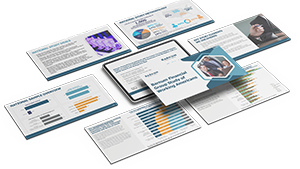
Inflation is the reduction of the purchasing power of a currency over time. The dollar is certainly not as impactful as it was 10 years ago because of inflation. With the recent struggles of the American economy, all we hear about is inflation and rising costs.
The world of personal finance is not immune. Financial plans need to be adjusted and balanced to fight back the effects of inflation. Retirement planning is one area of concern for many financial professionals. The causes and effects of inflation are uncontrollable. There are strategies you can use to mitigate the impact on your retirement savings.
Perform a Budget Analysis
Aligning your current earnings with your future is one of the first steps in mitigating the impact of inflation. When analyzing your budget, you should ask the following questions:
- What is my current and future income?
- In which areas am I overspending?
- How can I distribute my income for a comfortable retirement?
- Do I include the cost of inflation in my savings?
If inflation is high, find the expenses you need to cut to pay your bills and continue to put away for retirement. We talk all the time about needs vs. wants when the economy is on solid ground, and this concept doesn’t change when inflation enters the conversation. Budgeting for wants and needs just becomes that more important.
Test Your Retirement Plan
When you first build out your retirement plan, the question that you should ask yourself is how it will stand up against mitigating circumstances like inflation. It may hold up against 3% inflation, but what about 6%? Do you have enough of a buffer to withstand the potential of a rising rate?
Knowing this and being prepared for an inflation rate of over 9%, like we had in June 2022, will go a long way to protecting your retirement plan before even having to make adjustments that may be too late.
Save and Diversify
Apart from your emergency fund and day-to-day expenses, you should avoid holding excess cash as it’s the first casualty of a rising inflation rate. Saving your money in long-term schemes like bonds and stocks can protect your retirement plan from the impact of inflation. But it’s not enough to simple buy stocks and bonds and wait it out, you also need to diversify your portfolio. Seek out investments that have differing maturing cycles. (e.g., short-term vs. long-term investments)
These tips and more are where a Barnum financial professional can assist you with helping you budget for the unexpected and protect your retirement plan from rising inflation rates and more.



